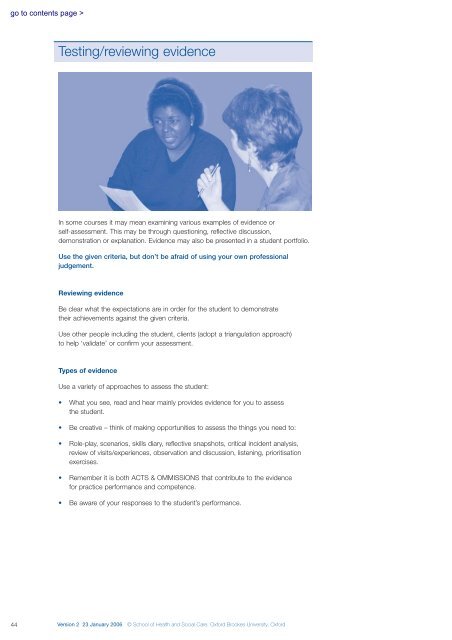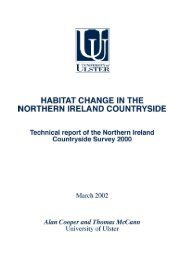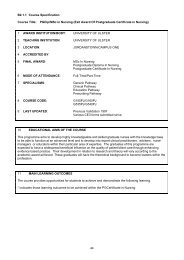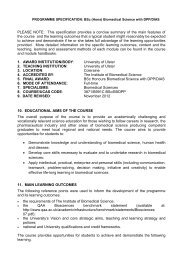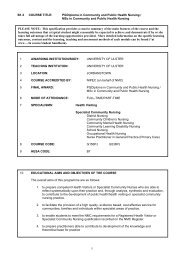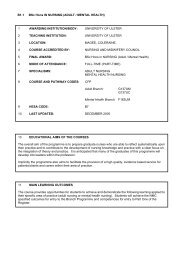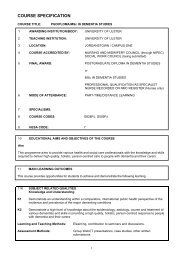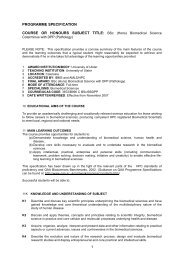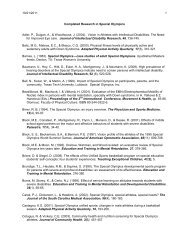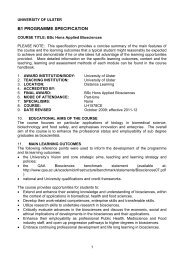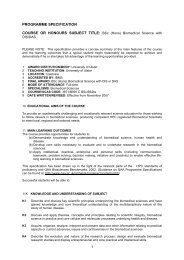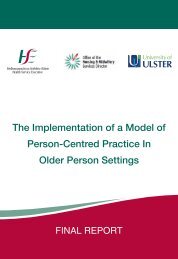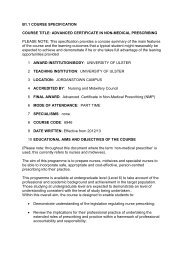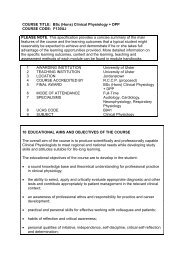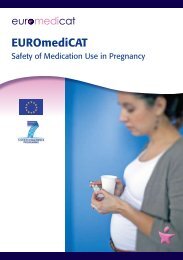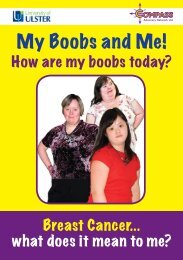050519-2 mentor handbookf - The INCLEN Trust
050519-2 mentor handbookf - The INCLEN Trust
050519-2 mentor handbookf - The INCLEN Trust
Create successful ePaper yourself
Turn your PDF publications into a flip-book with our unique Google optimized e-Paper software.
Testing/reviewing evidence<br />
In some courses it may mean examining various examples of evidence or<br />
self-assessment. This may be through questioning, reflective discussion,<br />
demonstration or explanation. Evidence may also be presented in a student portfolio.<br />
Use the given criteria, but don’t be afraid of using your own professional<br />
judgement.<br />
Reviewing evidence<br />
Be clear what the expectations are in order for the student to demonstrate<br />
their achievements against the given criteria.<br />
Use other people including the student, clients (adopt a triangulation approach)<br />
to help ‘validate’ or confirm your assessment.<br />
Types of evidence<br />
Use a variety of approaches to assess the student:<br />
• What you see, read and hear mainly provides evidence for you to assess<br />
the student.<br />
• Be creative – think of making opportunities to assess the things you need to:<br />
• Role-play, scenarios, skills diary, reflective snapshots, critical incident analysis,<br />
review of visits/experiences, observation and discussion, listening, prioritisation<br />
exercises.<br />
• Remember it is both ACTS & OMMISSIONS that contribute to the evidence<br />
for practice performance and competence.<br />
• Be aware of your responses to the student’s performance.<br />
44<br />
Version 2 23 January 2006<br />
© School of Health and Social Care, Oxford Brookes University, Oxford


